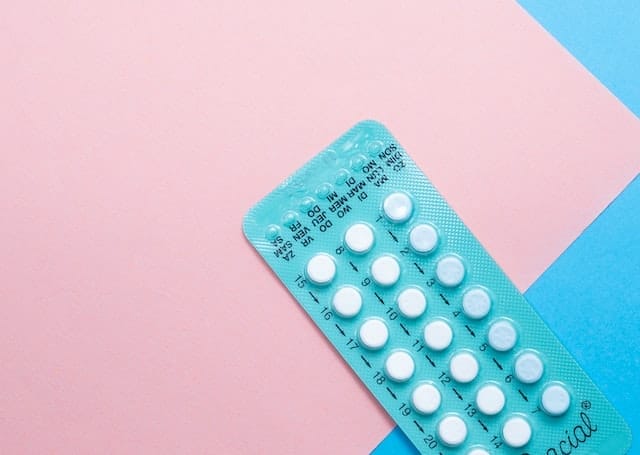Understanding the role hormones play in bodily functions that are essential for survival is needed in order to maintain one’s health. Even a minor change in hormone production can have severe health consequences. Here is everything you need to know about hormones, from what they do to how they affect us.

- What are Hormones
Hormones are biological chemicals produced by human bodies that function as messengers that send signals to tissues, skin, muscles, and organs through the bloodstream in order to regulate bodily functions. Hormones play a vital role in many bodily processes and work slowly over time.
They are involved in metabolic functions, growth and development, and reproduction, and can affect one’s mood, heart rate, blood pressure, and sleep cycles. While some hormones are constantly being produced and regulated, others increase in their levels when your body is undergoing certain changes.
Hormones are released through two major systems, the endocrine and exocrine systems. The endocrine system releases hormones to reach the target organ via ducts in the bloodstream. Exocrine glands release hormones directly into the bloodstream.
A gland is an organ that produces and secretes chemicals necessary for bodily functions to take place. The major endocrine glands are the pancreas, thyroid, pineal, pituitary, thymus, and adrenal glands.
Abnormal hormone production typically points to some disorder or imbalance in your body that hints at larger underlying health concerns. Small quantities of hormones can have a significant influence on different metabolic activities and bodily processes, so it is critical to maintain one’s hormonal balance. This can be done by maintaining a healthy lifestyle which includes eating healthy and exercising regularly.
- Major Hormones
Our bodies produce over 50 hormones and each one serves a specific purpose and plays an important role in biological processes. Here are a few of the major hormones present in the body and their functions.
Testosterone
Testosterone is the primary androgen and male sex hormone. Female bodies also produce testosterone but in limited quantities. Testosterone is essential for sperm production and the development of secondary sexual characteristics. It improves sex drive, muscle and bone mass, and red blood cell production. It is essential to learn about testosterone, its functions, and the consequences of imbalance since testosterone deficiency can lead to a number of medical conditions. For instance, low levels of testosterone are linked to hair loss, decreased muscle weight, erectile dysfunction, and prostate cancer. Excessive production of testosterone can lead to fertility problems.
Estrogen
Oestrogen is the primary female sex hormone and is also found in men but in limited quantities. In females, ovaries produce estrogen which is essential for regular ovulation, mammary gland development, menstruation, and building bone density. An imbalance in estrogen can lead to an array of issues.
Low levels of estrogen are associated with osteoporosis, fertility and menstrual issues, and mood disorders. The natural decline of estrogen production with aging is normal. However, in pre-menopause, there should typically be no such imbalance. Excessive production of estrogen can lead to weight gain, low sex drive, depression, anxiety, and irregular sleep cycles.
Cortisol
A steroid hormone produced by the adrenal gland, cortisol is vital for keeping your body healthy and energized. It functions by regulating metabolism, blood pressure, and anti-inflammatory systems. Since cortisol levels increase in response to stress, the hormone is also called the stress hormone. Too much cortisol in the body for prolonged periods of time can lead to anxiety, hypertension, sleep loss, and various autoimmune issues. Fatigue and low blood pressure is a side-effect of low cortisol levels.
Adrenaline
The adrenal hormone is secreted by the adrenal glands present right above the kidneys. Produced during fight or flight situations, increased levels of adrenaline excite the body and trigger the central nervous system. It prepares the body to react to stressful situations and allows for quick decision-making. Common side effects of excessive adrenaline production include increased heart and breathing rate, high blood pressure, anxiety, and dizziness.
Progesterone
Progesterone is another important hormone alongside estrogen that plays a significant role in the female reproductive system. Progesterone is necessary for the menstrual cycle to take place regularly and prepares the female body for pregnancy. Low levels of progesterone can lead to miscarriages and premature birth. Excessive progesterone is also associated with various cancers.
- How do they Work
Hormones released by glands reach the target tissue or organ through the bloodstream and bring about a change in the effector cells. Hormones can also influence the cells surrounding the target organ.
For a hormone to be detected, the target cells must have receptors that can identify that particular hormone. If the receptors are unable to detect the hormone due to dysfunction, or if the cells don’t have any hormone receptors themselves, then this will result in an imbalance due to the loss of hormonal function. For instance, in Type 2 diabetes, pancreatic cells don’t respond to the insulin hormone normally, resulting in high glucose levels in the blood.
Hormone communication occurs through two biological mechanisms. First, there is communication between endocrine glands. One gland releases a hormone that stimulates another hormone to either release or stop secreting another hormone. This type of mechanism is part of a larger feedback mechanism that our bodies use to regulate hormone production and release. For instance, communication between your pituitary and thyroid gland functions in this way. The pituitary gland releases the thyroid-stimulating hormone TSH which then signals the thyroid gland to release its thyroxine hormone, essential for many metabolic processes.
The second type of communication system is between the target organ and the endocrine gland. The target organ has the receptors needed to identify and interact with the hormone. A basic example would be pancreatic cells and the insulin hormone. Pancreatic cells have the receptors needed to identify insulin, which helps lower blood glucose levels by encouraging the liver and muscles to consume and process glucose.

Once you have a thorough idea of just how important hormones are for the human body, you will begin paying more attention to your hormonal health. You can always get hormone levels analyzed through blood tests if you ever feel as though there is some imbalance within your body. We hope that our article has helped you gain basic knowledge and understanding of what hormones are, how they work, and their importance to human health.






